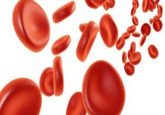Three-drug combination may offer hope to advanced colorectal cancer patients

A collaborative effort involving oncology specialists worldwide has discovered that BRAF mutation-driven colorectal cancer may respond to combination therapy comprising three targeted drugs. The results of this multicenter clinical trial may offer hope to patients whose treatment options were previously limited.
Josep Tabernero of the Vall d’Hebron University Hospital and Vall d’Hebron Institute of Oncology (both Barcelona, Spain) presented the findings at the 26th EORTC-NCI-AACR Symposium on Molecular Targets and Cancer Therapeutics (18–21 November 2014, Barcelona, Spain). Tabernero and colleagues across Europe, Asia and North America are investigating the BRAF inhibitor encorafenib, combined with the EGFR inhibitor cetuximab, with or without a third agent termed alpelisib, which inhibits the PI3K pathway. These tests are in the Phase I clinical trial stage for patients with advanced BRAF-mutated colorectal cancer.
“Among the 54 patients enrolled in the dose-finding part of the trial, we found that tumors shrank in 23% of the patients receiving encorafenib and cetuximab, and in 32% of patients receiving a combination of all three drugs,” stated Tabernero.
“The median length of time that patients survived without their disease worsening ranged from 16 weeks for patients receiving the dual therapy to 19 weeks for those receiving all three drugs. While we were not comparing patients on these therapies with patients receiving the normal standard of care, these progression-free survival times are nearly double those for patients who have been treated in the past with standard of care therapies,” he continued.
Tabernero outlined recent efforts using a single agent BRAF inhibitor that delivered disappointing results in improving response to therapy in colorectal tumors. Speaking of the current work with this combination therapy, he explained that due to the encouraging preclinical results, and to avoid mechanisms of primary resistance to therapy, the safety and efficacy of the new treatment was assessed.
It is acknowledged that the trial is in very early stages, but the researchers are encouraged by the combination approach as it is demonstrating improved efficacy and extended progression-free survival, with manageable side effects in patients suffering metastatic colorectal cancer.
Enrolled patients received orally administered encorafenib once daily, along with intravenous cetuximab (400 mg / m2 for the initial loading dose, followed by 250 mg / m2 weekly). Additionally, 28 of the patients also received an oral dose of alpelisib once a day.
The drug combination was generally well tolerated among the patients. Side effects of the dual therapy included fatigue, reactions to the infusion and decreased blood phosphate levels. Triple therapy side effects included nausea, diarrhea, skin rashes, high blood sugar and increased lipase levels.
The genetic make-up of patients’ tumors were analyzed and compared with their treatment responses. These analyses demonstrated the diversity of BRAF-mutated colorectal cancer, showing the involvement of several cancer-related pathways, including the PI3K and WNT pathways. Researchers indicate that this may be the reason the combination therapy demonstrates increased efficacy.
The trial is continuing to enrol test subjects, aiming for up to 50 individuals per arm, to receive either dual or triple combination therapy in the hope of determining the most promising approach.
“BRAF mutants represent a genetically well-defined subgroup of colorectal cancers. In such patients monotherapy with BRAF inhibitors lacks activity in clear contrast with the indisputable activity observed in BRAF mutant melanoma or non-small-cell lung cancer. Here a dual blockade of BRAF and EGFR, as well as a triple blockade of BRAF, EGFR and PI3K demonstrate clear antitumor activity in the vast majority of patients with tumor shrinkage in 25–30% and stable disease in 54–60%,” commented Jean-Charles Soria of the Gustave Roussy Cancer Campus (France), chair of the scientific committee for the EORTC-NCI-AACR Symposium.




